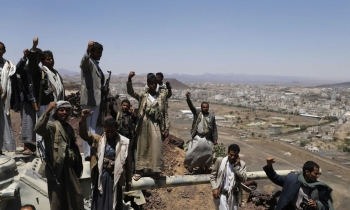In yet another move that will worsen the flow of—and lack of access to—information in Zimbabwe, the government has slapped an import duty on all newspapers, magazines and periodicals coming into the country.
On June 8, the state-owned Herald newspaper reported that all "foreign newspapers sold in Zimbabwe will now have to pay import duty, as the government moves to protect Zimbabwean media space". The newspaper went on to say that this move is meant to curb the entry into the country of what it called "hostile foreign newspapers".
Citing new regulations published in an extraordinary government gazette, the paper said foreign publications—including newspapers, journals, magazines and periodicals—were now classed as "luxury goods" and would attract an import duty of 40 per cent of the total cost per kilogram.
The Information Ministry's permanent secretary and President Robert Mugabe's spokesperson, George Charamba, hinted at the measures when he told guests at a media awards ceremony in early June 2008 that foreign publications were reaping profits from sales in Zimbabwe while paying nothing or very little, according to the Media Institute of Southern Africa (MISA).
"The government is looking at the whole regime, which allows anyone to push their publications here without paying anything or paying very little, yet when sales are done, profits have to be turned into foreign currency which leaves the country," said Charamba. "We lose the politics, we lose money. As the ministry responsible, it is our duty to protect and defend the national media space," he added.
Zimbabwe has only two dailies, both controlled by the government, since the only privately-owned daily, the Daily News, was banned in 2003. The country has no private radio or television stations and, for an alternative to the official line, most Zimbabweans turn to foreign radio stations and regional newspapers, mostly from South Africa, which carry stories about Zimbabwe.
The newspapers that are to be affected by this move include the Zimbabwean, a tabloid highly critical of the Zimbabwe government, the Mail and Guardian, Sunday Times and many others published in South Africa. South African newspapers were filling in the void left by the banning of four newspapers in Zimbabwe since 2003. Local independent newspapers in Zimbabwe operate under a harsh legal environment in which they are forced to sell copies at a government-stipulated price.
The import duty, coming as it does while Zimbabwe prepares for a run-off election, will worsen the already bad flow of—and limited access to—information in Zimbabwe, MISA warned. The state media, meanwhile, has stepped up its campaign against civic and opposition groups, leaving no room for alternative voices to be heard.









